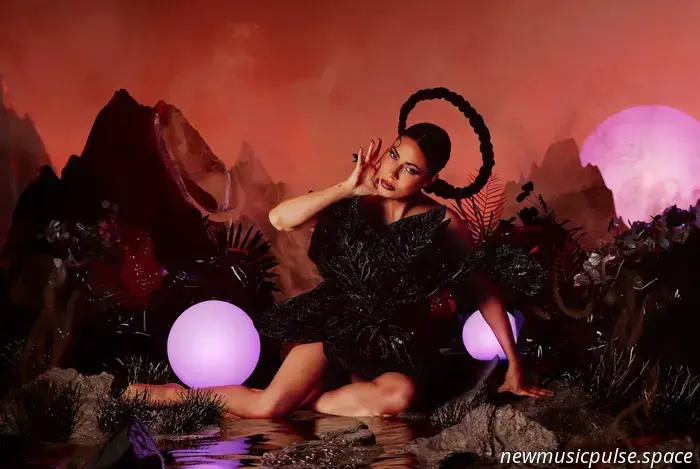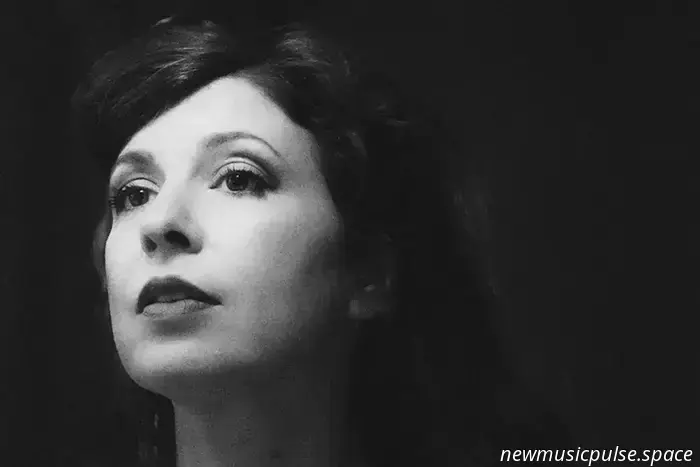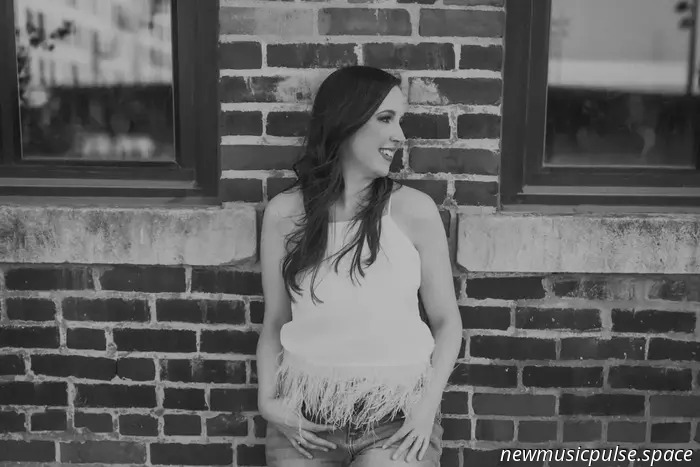
In celebration of Women’s History Month, Atwood Magazine has invited artists to contribute essays that contemplate themes of identity, music, culture, inclusion, and more.
•• •• •• ••
Today, the captivating and cinematic artist Empara Mi shares her journey of personal growth and reclaiming her power in the music industry through a special essay for Atwood Magazine’s Women’s History Month series!
Boldly unconventional and enigmatic, Empara Mi is forging her own path in music. Her debut album, ‘Suitcase Full of Sins’ released in 2020, became an underground hit during the pandemic, accumulating over 30 million streams and featuring songs like “Blood in the Water” and “Ditch” in popular Netflix series such as ‘Ginny & Georgia’ and ‘Behind Her Eyes.’ Her cinematic sound has been utilized in projects like Transformers, Fortnite, Riviera, and Dynasty, as well as in global campaigns for brands like Apple and Pretty Little Thing. Most recently, her version of “God’s Gonna Cut You Down” for Day of the Jackal received widespread praise.
Inspired by cinematic scores, operatic grandeur, and the raw essence of hip-hop, Empara Mi has developed a unique sound. Her voice, which Clash Magazine described as possessing a “devastating sense of soul,” has made her a highly sought-after collaborator, evident in her featured single ‘Freedom’ with Wilkinson and Sub Focus on their No. 1 album ‘Portals.’ With new music that is set to make a significant impact, Empara Mi is definitely an artist to watch this year!
•• ••
by Empara Mi
If I had told my younger self that I would one day sign a five-album deal with one of the largest record labels in the world, I can picture two possible reactions – either sheer excitement at the thought of becoming a global icon, or utter confusion about what that even meant.
Growing up on a small island, it’s challenging to pinpoint when I first became aware that my favorite artists weren’t just creating music from their bedrooms. I remember watching shows like ‘Making the Band’ on MTV, which fascinated and horrified me at how much effort went into ‘making an artist.’
Despite this knowledge, I was undeterred. At 15, I left for England, hopeful to surround myself with like-minded individuals and place myself in a position to be “discovered.”
I attended university after school, unexpectedly not to study music, but history. Clearly, it was evident to those around me that my real focus lay elsewhere, making my academic pursuit a mere diversion from my true aspirations.
Admitting this is a bit embarrassing (though certainly not the most shameful thing I did at university), I recall returning home after nights out, sitting in the back of a black cab, inebriated and overly extroverted, when the inevitable question arose. “So, what do you do?”
This was my moment: “I’m a singer.”
The typical response was something like, “Oh, where do you sing?” Realizing my answer was not resonating as intended, I felt compelled to adjust it. “I’m a singer, and I’ve just signed with Sony, you know, Sony Records.”
Truthfully, it wasn’t accurate…yet. However, the reaction was always more enthusiastic.
It was like an exorcism, the way people would turn around to catch a glimpse of the celebrity who supposedly inhabited their cab.
“Oh, I’m so sorry I didn’t recognize you, what’s your name? My kids will be so upset if I don’t get a picture.”
That feeling would only last a few moments before I’d think, okay, I feel guilty now, and I should definitely stop drinking.
But this moment validated everything I already knew: in the eyes of others (and indeed my own), being signed to a major label represented the division between being an aspiring singer and an authentic artist.
As fate would have it, I eventually signed with Sony – RCA, to be specific.
It was a whirlwind experience, I admit – after all the meetings, the wining and dining, and the offers, I signed my five-album deal. I mention this casually, as hindsight reminds me that I’m not the first girl to undergo this experience, nor will I be the last. Yet, one would think this should have been the happiest day of my life.
Naturally, I participated in the celebratory photoshoot with champagne, which was inevitably shared on Facebook alongside some disingenuous message (it’s probably still out there, so don’t look it up). I even dyed my hair an awful green, as if that would help me feel more like an “artist.” I remember, with naive confidence, asking about collaborating with other acts on their roster while staring at a framed picture of Pharrell on the






Nashville-based recording artist Xanthe Alexis offers her distinctive viewpoint on balancing motherhood and her career as a touring musician. In a special essay for Atwood Magazine's Women's History Month series, she emphasizes the importance of mothers' voices on a global platform.

Christine Bauer, a singer/songwriter from Nashville, presents a heartfelt essay regarding her choice to abandon the 'secure' route in favor of following the life she was destined to lead, featured in Atwood Magazine's Women's History Month series!
The enchanting and cinematic artist Empara Mi presents her personal journey of growth and reclaiming her power within the music industry in a heartfelt essay for Atwood Magazine's Women's History Month series!